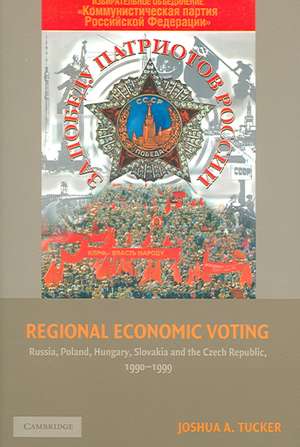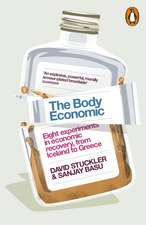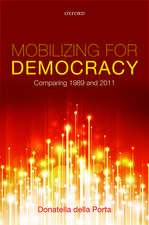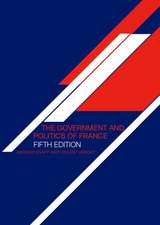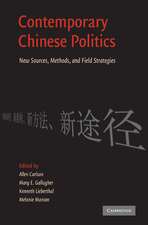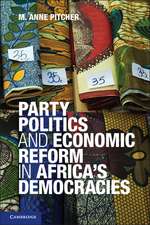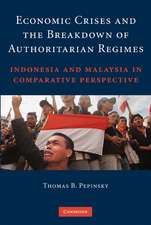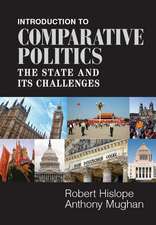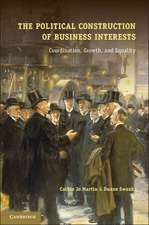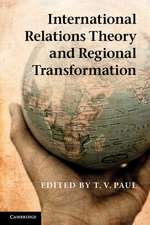Regional Economic Voting: Russia, Poland, Hungary, Slovakia, and the Czech Republic, 1990–1999: Cambridge Studies in Comparative Politics
Autor Joshua A. Tuckeren Limba Engleză Paperback – 12 feb 2006
| Toate formatele și edițiile | Preț | Express |
|---|---|---|
| Paperback (1) | 257.21 lei 6-8 săpt. | |
| Cambridge University Press – 12 feb 2006 | 257.21 lei 6-8 săpt. | |
| Hardback (1) | 645.78 lei 6-8 săpt. | |
| Cambridge University Press – 8 ian 2006 | 645.78 lei 6-8 săpt. |
Din seria Cambridge Studies in Comparative Politics
-
 Preț: 233.13 lei
Preț: 233.13 lei -
 Preț: 267.61 lei
Preț: 267.61 lei -
 Preț: 239.36 lei
Preț: 239.36 lei -
 Preț: 185.64 lei
Preț: 185.64 lei -
 Preț: 160.82 lei
Preț: 160.82 lei -
 Preț: 206.52 lei
Preț: 206.52 lei - 9%
 Preț: 594.68 lei
Preț: 594.68 lei -
 Preț: 225.70 lei
Preț: 225.70 lei -
 Preț: 164.94 lei
Preț: 164.94 lei -
 Preț: 206.71 lei
Preț: 206.71 lei -
 Preț: 236.42 lei
Preț: 236.42 lei -
 Preț: 358.38 lei
Preț: 358.38 lei -
 Preț: 231.82 lei
Preț: 231.82 lei -
 Preț: 257.82 lei
Preț: 257.82 lei -
 Preț: 264.74 lei
Preț: 264.74 lei -
 Preț: 269.58 lei
Preț: 269.58 lei -
 Preț: 201.24 lei
Preț: 201.24 lei -
 Preț: 232.45 lei
Preț: 232.45 lei -
 Preț: 203.42 lei
Preț: 203.42 lei -
 Preț: 191.12 lei
Preț: 191.12 lei -
 Preț: 158.77 lei
Preț: 158.77 lei -
 Preț: 199.05 lei
Preț: 199.05 lei -
 Preț: 288.80 lei
Preț: 288.80 lei -
 Preț: 388.29 lei
Preț: 388.29 lei -
 Preț: 288.04 lei
Preț: 288.04 lei - 11%
 Preț: 695.06 lei
Preț: 695.06 lei - 11%
 Preț: 553.80 lei
Preț: 553.80 lei -
 Preț: 262.06 lei
Preț: 262.06 lei - 11%
 Preț: 691.66 lei
Preț: 691.66 lei -
 Preț: 228.00 lei
Preț: 228.00 lei -
 Preț: 385.28 lei
Preț: 385.28 lei -
 Preț: 312.89 lei
Preț: 312.89 lei -
 Preț: 224.44 lei
Preț: 224.44 lei -
 Preț: 287.07 lei
Preț: 287.07 lei -
 Preț: 251.27 lei
Preț: 251.27 lei -
 Preț: 313.70 lei
Preț: 313.70 lei -
 Preț: 277.38 lei
Preț: 277.38 lei -
 Preț: 423.79 lei
Preț: 423.79 lei - 11%
 Preț: 552.94 lei
Preț: 552.94 lei - 11%
 Preț: 554.43 lei
Preț: 554.43 lei - 14%
 Preț: 783.26 lei
Preț: 783.26 lei - 11%
 Preț: 584.04 lei
Preț: 584.04 lei -
 Preț: 228.60 lei
Preț: 228.60 lei
Preț: 257.21 lei
Nou
Puncte Express: 386
Preț estimativ în valută:
49.22€ • 52.63$ • 41.04£
49.22€ • 52.63$ • 41.04£
Carte tipărită la comandă
Livrare economică 18 aprilie-02 mai
Preluare comenzi: 021 569.72.76
Specificații
ISBN-13: 9780521672559
ISBN-10: 0521672554
Pagini: 444
Ilustrații: 115 tables
Dimensiuni: 152 x 230 x 23 mm
Greutate: 0.59 kg
Editura: Cambridge University Press
Colecția Cambridge University Press
Seria Cambridge Studies in Comparative Politics
Locul publicării:New York, United States
ISBN-10: 0521672554
Pagini: 444
Ilustrații: 115 tables
Dimensiuni: 152 x 230 x 23 mm
Greutate: 0.59 kg
Editura: Cambridge University Press
Colecția Cambridge University Press
Seria Cambridge Studies in Comparative Politics
Locul publicării:New York, United States
Cuprins
1. Introduction; 2. Economic conditions and election results; 3. Comparative cross-regional analysis; 4. Paired case studies; 5. The incumbency hypothesis; 6. The new regime hypothesis; 7. The old regime hypothesis; 8. Comparative analysis; 9. Economic voting and post-communist politics.
Recenzii
"Joshua Tucker has produced a magisterial study of the phenomenon of economic voting in postcommunist countries. Tucker proposes two alternative models of economic voting, one based on standard Western accounts and the other adapted for states that have recently undergone major regime change, and evaluates them for four countries in the first decade following the end of the communist regime. Tucker's treatment is theoretically and methodologically innovative, and the comprehensive dataset of subnational-level voting results that he collected gives his findings unusual authority." Thomas F. Remington, Emory University
"This manuscript is pathbreaking in its effort to apply theories of economic voting developed in the context of stable Western democracies, and in particular the U.S., to the much less stable context of postcommunist Eastern and Central Europe. It is methodologically sophisticated, developing an original approach to measuring economic voting based on a case-by-case comparative statistical analysis of regional-level economic and electoral data. Finally, the argument itself-that relatively well-off voters in postcommunist democracies have generally rewarded parties representing the "new regime" (that is, liberal capitalism) while relatively poor voters have consistently rewarded "old regime" parties (that is, the various communist party successors)eis both counterintuitive and substantively important. Tucker's book will be widely read among specialists in electoral politics and postcommunist studies." Stephen Hanson, University of Washington
"Joshua Tucker's monograph successfully challenges much of what passes for conventional wisdom about the links between economics and voter behavior by employing aggregate data to explore regional differences in voting behavior and their links to the economy. This is real comparative politics: the study embraces five countries--Russia, Poland, the Czech Republic, Slovakia, and Hungary--and twenty elections in a methodologically sophisticated way and assesses alternative hypotheses with extraordinary care." William Zimmerman, University of Michigan
"Many have studied the impact of politics on economic reform in the postsocialist countries, and many have studied the impact of economics on electoral outcomes in established democracies, particularly the United States. Far fewer have considered the effects of economic conditions on elections in postsocialist societies, and none so thoroughly or systematically as Tucker does in this book." Robert Levgold, Foreign Affairs
"Regional Economic Voting is a truly impressive piece of work, showcasing the author’s methodological rigor and flair for statistical analysis."
Tim Haughton, University of Birmingham, UK, Russia Review
"One fine example is Regional Economic Voting in which Joshua A. Tucker effectively probes and refines the assumptions of economic voting in established democracies to suggest how variations in economic conditions have affected political support for postcommunist parties...Regional Economic Voting is a valuable study, meticulously executed and thoroughly supported. It is highly recommended for scholars of new democracies, and not just postcommunist democracies."
Jennifer A. Yoder, Colby College, Perspectives on Politics
"In this ambitious and methodologically sophisticated study, Joshua Tucker takes on the challenge and suggests a fresh approach for cutting through the fog of post-communist institutional ambiguity."
Dmitri Mitin, North Carolina State University, Canadian Journal of Political Science
"Regional Economic Voting serves as another excellent example of comparative research in the social sciences... Theoretically motivated, methodologically sound, and well argued, the book is a fine addition to the growing number of works in the genre."
Terry D. Clark, Creighton University, Slavic Review
"In this outstanding new study, Joshua Tucker evaluates the economic voting literature in light of the postcommunist evidence and in doing so turns much of it on its head....Regional Economic Voting is a shining example of how to design a monograph in a way that derives maximum theoretical leverage from a body of evidence while cautiously keeping one’s conclusions as close as possible to this evidence. This book is a remarkable achievement and will be widely read."
Neil Abrams, University of California, Berkeley, Comparative Political Studies
"This manuscript is pathbreaking in its effort to apply theories of economic voting developed in the context of stable Western democracies, and in particular the U.S., to the much less stable context of postcommunist Eastern and Central Europe. It is methodologically sophisticated, developing an original approach to measuring economic voting based on a case-by-case comparative statistical analysis of regional-level economic and electoral data. Finally, the argument itself-that relatively well-off voters in postcommunist democracies have generally rewarded parties representing the "new regime" (that is, liberal capitalism) while relatively poor voters have consistently rewarded "old regime" parties (that is, the various communist party successors)eis both counterintuitive and substantively important. Tucker's book will be widely read among specialists in electoral politics and postcommunist studies." Stephen Hanson, University of Washington
"Joshua Tucker's monograph successfully challenges much of what passes for conventional wisdom about the links between economics and voter behavior by employing aggregate data to explore regional differences in voting behavior and their links to the economy. This is real comparative politics: the study embraces five countries--Russia, Poland, the Czech Republic, Slovakia, and Hungary--and twenty elections in a methodologically sophisticated way and assesses alternative hypotheses with extraordinary care." William Zimmerman, University of Michigan
"Many have studied the impact of politics on economic reform in the postsocialist countries, and many have studied the impact of economics on electoral outcomes in established democracies, particularly the United States. Far fewer have considered the effects of economic conditions on elections in postsocialist societies, and none so thoroughly or systematically as Tucker does in this book." Robert Levgold, Foreign Affairs
"Regional Economic Voting is a truly impressive piece of work, showcasing the author’s methodological rigor and flair for statistical analysis."
Tim Haughton, University of Birmingham, UK, Russia Review
"One fine example is Regional Economic Voting in which Joshua A. Tucker effectively probes and refines the assumptions of economic voting in established democracies to suggest how variations in economic conditions have affected political support for postcommunist parties...Regional Economic Voting is a valuable study, meticulously executed and thoroughly supported. It is highly recommended for scholars of new democracies, and not just postcommunist democracies."
Jennifer A. Yoder, Colby College, Perspectives on Politics
"In this ambitious and methodologically sophisticated study, Joshua Tucker takes on the challenge and suggests a fresh approach for cutting through the fog of post-communist institutional ambiguity."
Dmitri Mitin, North Carolina State University, Canadian Journal of Political Science
"Regional Economic Voting serves as another excellent example of comparative research in the social sciences... Theoretically motivated, methodologically sound, and well argued, the book is a fine addition to the growing number of works in the genre."
Terry D. Clark, Creighton University, Slavic Review
"In this outstanding new study, Joshua Tucker evaluates the economic voting literature in light of the postcommunist evidence and in doing so turns much of it on its head....Regional Economic Voting is a shining example of how to design a monograph in a way that derives maximum theoretical leverage from a body of evidence while cautiously keeping one’s conclusions as close as possible to this evidence. This book is a remarkable achievement and will be widely read."
Neil Abrams, University of California, Berkeley, Comparative Political Studies
Notă biografică
Descriere
This is the first book length study of economic voting outside of established democracies.
